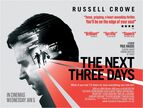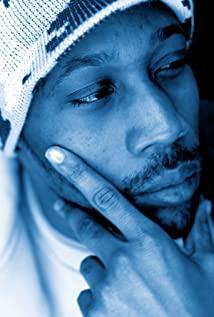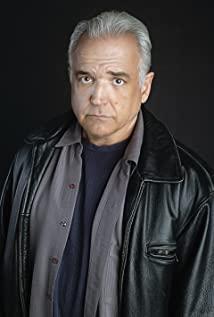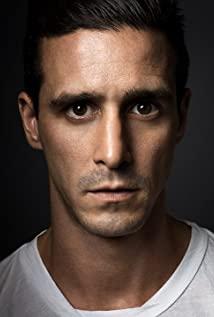In 1976, Bei Dao wrote a poem titled "Answer". The two most famous lines are "Despicable is the pass of the despicable, and the noble is the epitaph of the noble". But poetry eyes are actually four words full of power: "I don't believe it!" In the
face of the darkness and ugliness around, "I don't believe" is a decisive attitude and uncompromising, but this angry confrontation actually contains Looking forward to bright and beautiful. I don't believe that ugliness will be the norm, I believe that good will eventually come.
So, what is worthy of our belief.
"Three Days in Crisis" provides us with a template. In a family with a peaceful and happy life, his wife suddenly became a suspected murderer, and the evidence is solid. Faced with such a situation, what should the husband do? The director Paul Haggis, who won an Oscar for "Crash", has shown his ability to grasp emotions in "Crash". Different from the group portrait of "Crash", "Three Days in Crisis" is almost a one-man show played by Russell Crowe's husband alone, but with the sophisticated script and the touching performance of the Australian actor who has no big belly, the emotions between people remain the same. Delicate and touching.
Because the husband’s answer is: I believe it. He didn't even ask his wife if she did it, because he believed that it was his lover, and they ate together and grind each other that night. She would never do such a thing. Even if all the evidence is against her, even if their lawyers persuaded him, "You forget that she is your lover, go and read the report", the implication is that you are blinded by your emotions and ignore the facts. . This is a kind of logic that we often see, and it is often the correct logic. But the trust of her husband at this time has made others feel paranoid and crazy. Faced with the hope and time that disappeared little by little, seeing the helpless and desperate of his loved one, he chose to take the risk.
The movie uses a lesson from my husband to explain his heart. The similar technique reminds me of "The Life of David Gore", which is also a condemned prisoner who is short of time. It also has delicate emotions. It also uses the protagonist’s experience. Some questions in class. But unlike Lacan’s philosophy in David’s classroom, the husband’s lesson is simple and clear: Don Quixote, a complete embodiment of idealism. The purest and thorough belief gave him a reason to be paranoid and a reason to reject the so-called rationality.
2
As a Hollywood commercial genre, this film is not really new. Various settings and plots are very common (as in the lesson above), so this film has also been criticized as a cliche. But the cliché is never a derogatory term for commercial films. Moreover, "Three Days in Crisis" takes the path of the most orthodox commercial film. It is not the same as "Crash" which is tasted by the Oscar judges. Although it is all about "human nature", a commercial film that wants to make money will not. It is so ambiguous and ambiguous, it will not be exploratory, but eulogizing (the so-called main theme). Because paying attention to family is a very important point in American values, extolling family affection (love) is also a common theme in mainstream Hollywood commercial films. But it is absolutely rare to be able to achieve the exquisiteness of "Three Days in Crisis", taking care of all aspects of mainstream emotional models. With the male protagonist as the center, the emotions between him and his relatives are textbook-like moving. The main axis is of course the love of the couple. In fact, what we see is basically the limit version that a good man can reach when loving his wife. Here, we must once again praise the excellent script, the description of the emotions, and the opening of the chapter succinctly explain the relationship between the characters. A dinner and a breakfast give us an intuitive feeling of "family harmony". The drama conflict reached a small climax after the wife was in prison. Three years were enough to alienate the child from the mother, but the husband's unconditional trust and the spirit of never giving up was very moving. It also paved the way for all subsequent craziness.
Of course, we can feel that this seems to be a superb good man who has been deified. Even his wife was a little broken by his perfection. In the three years that Russell Crowe took care of his son alone, work, lawsuits, and loneliness have never allowed him to neglect his care for his son, and he was not at all tempted to show kindness to single mothers. He only has his wife and family in his heart, and this love is not weakened by separation, and he is not doubted by the so-called rationality of others. This is true love, and it is also a rare love, so beautiful and unreal. But this is my favorite "unreality". In fact, it is the same as the unreality of the main melody of the sky. We know that it is rare to almost impossible, but since this is the ultimate beauty we yearn for, we are willing to believe it. This is real.
The handling of the relationship between father and son is not much, but it is excellent. There is no need to say more about the husband and the son, but what moved me more was the few scenes between my husband and his "never talk" father. The second one was great: the husband grabbed the money to pick up his son, and the son fell asleep at his grandparents' house, and he slept beside his son when he was tired. Grandpa found the ticket in his bag and guessed his plan. When he woke up and took his son to say goodbye, he knew that this was the introverted and emotional "goodbye" of the grandfather who was farewell, and the look in each other's eyes made people burst into tears. The three generations of grandparents deduced the complex relationship of "attachment-confrontation-reflection-understanding" between father and son quite moving.
3
The choice of Russell Crowe as the actor in this film is because of his trust in his acting skills. He can be as rich as he is in "Beautiful Mind" and the sharp-felt actor in "L.A. Confidential", even in Hollywood. . "Three Days in Crisis" takes the path of an authentic commercial film, which also determines that the tension of the plot cannot be used alone. The latter half of the film is a very technical story about a prison escape.
Of course, unlike Shawshank's Andy and Hulihe's Shi Goufei, the husband who is a teacher at a community college is not as good as the above two. As an ordinary person, he has to complete the technically difficult task of "helping a female murderer who has never conspired outside the prison escape from an urban prison". This "knowingly knowing what to do" approach has pushed the husband's love for his wife to the highest level.
And the subsequent escape process is a very technical part of the film's plot. People who do not have any professional skills and special abilities go to escape, but it is a subject that has not been involved in other films. It is also a major commercial selling point. The husband implements his plan step by step by means of consulting experts and online tutorials, which are very contemporary. But the fake ID was beaten, and the experiment key was almost caught out of fright. Difficulties are embodied in all kinds of realities. Of course, if the plot continues in this way, the husband will collapse in frustration and approaching deadlines, which is more in line with the real situation and can explore human nature more deeply. But this wastes the skill of Russell Crowe, and secondly, the audience who buys tickets are not willing. So there is a prison escape drama that is not inferior to the blockbuster of the same subject in the second half.
In the last three days, from the time when the husband went to rob the drug dealer, another selling point of the main commercial film began: action and suspense. We don't care whether Russell Crowe's professional shooting skills are reasonable, why can we make a seamless plan. Just look at the good plots and scenes. Although the whole trend of the final is the cliché of the cliché, all the methods (whether the characters in the play or the main creation) can find precedents in other films. But that huge escape scene is very capable of grabbing the audience's hearts. Because of the excellent emotional paving in the front, all audiences have a great sense of identification with this superb man. Therefore, during this period of time and space, the audience has the pleasure of deciphering the previous behavior of the husband, and the more direct pleasure comes from the suspense and expectation of whether the family can successfully escape. This scene has also become the most anxious and most exciting time in my recent movie-watching experience.
In the process of fleeing, the scene in which the wife jumped into the car when she found her son not seen was even more fascinating. Moreover, the two people stopped the car and sat down quietly on the sunny meadow, which also relieved their emotions and stored energy for the next wave of stimulation. The purpose of this example is to illustrate the film’s excellent film technology, a good grasp of the rhythm and detailing, coupled with the touching emotions, and the strong sense of tension under the emotional pavement. This is almost a commercial film. Can give the audience the best viewing experience.
4
The end of this film is a little bit procrastinated, put it in other films, and the last family of three will live happily in Venezuela. However, this film spent a lot of space on police investigations, and even restored the real situation on the night of the crime, but this is actually the last and best emotional release point. I have always kept the suspense about whether she did it or not. When the truth comes to light and the husband’s unconditional belief is correct, this setting is much better than an open or dark ending, and it is more timeless.
Because, as I have always said, the thing that touches me the most in this film is my husband’s "I believe". Although based on this idealistic belief, he did a lot of stupid things that ordinary people seem to mess up, and that would mess everything up. If it weren't for the surprisingly good luck, he would have had two more souls and an orphan. But was his initial belief, the persistence of beauty and love, right or wrong? The film gave us a firm answer: yes, that's how it should be. This is what this genre film can give us: a perfect viewing experience and moving. What if it's not true? Movies are originally dream-making, they are originally about ideals.
Such a good film actually failed miserably at the North American box office. Of course, we can count his shortcomings: except for the male protagonist, the characters are very thin, and the action scenes are lackluster, but the more direct reason I think is the collision with Haqi. This is a blow to the director who is full of confidence praising idealism. Just like in life, idealists don’t know how great they have been. But it doesn't matter. I believe that good movies will always get a fair evaluation.
If "Three Days in Crisis" is an idealized utopia, whether it is the protagonist or the plot, the box office failure of this film also proves that there is always an infinite gap between idealism and the real world, but just as Bei Dao in that poem Written: I don't believe that dreams are fake, I don't believe that death is without retribution. What I believe is that the ugly darkness will always pass, and the good light will come. I believe that the old lady lying on the side of the road is not trying to blackmail. I believe that the stranger on the train is not a liar. I believe that things that everyone hates will not last forever. I believe that the world will become as beautiful as we imagined. Although you have to learn not to be so naive, even know that sometimes you have to avoid it. But for all the goodness, expectation, love and kindness, I will only treat it with one attitude, that is:
I believe.
View more about The Next Three Days reviews











